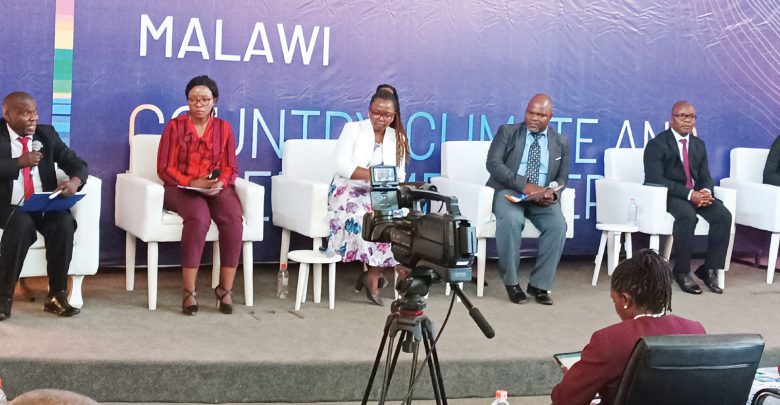

The new World Bank Country Climate and Development Report for Malawi has said climate change would make it harder for Malawi to achieve its ambitious development goals—unless it supplements efforts with additional investment in adaptation.
The report, released in Lilongwe Thursday, says, most immediately, Malawi must take steps to jumpstart investments in climate-resilient infrastructure and halt land degradation and forest loss to improve agriculture productivity and carbon capture.
It says prioritising the actions, combined with expanded safety nets and economic diversification, could reduce the number of vulnerable households that would otherwise fall into poverty by as much as three-quarters.
Speaking during the launch, World Bank Country Manager Hugh Riddell said Malawi’s pathway to economic growth is persistently halted by climate shocks, leaving millions trapped in poverty for many decades.
“Vision 2063 for Malawi provides a clear pathway to build a resilient economy. The World Bank is providing climate financing to support that vision and help the government reduce the impacts of climate change under fiscal constraints,” Riddell said.
According to the report, without these investments, climate change could reduce gross domestic product by 3 to 9 percent by 2030, 6 to 20 percent by 2040, and 8 to 16 percent by 2050.
Minister of Natural Resources and Climate Change Eisenhower Mkaka admitted that climate change would make it harder for Malawi to reach the ambitious goals of the Malawi 2063 vision.
“It is crucial for the country to start addressing climate resilience now, starting with lower cost, high impact priorities, as outlined in our development plan and the CCDR,” Mkaka said.
International Finance Corporation (IFC) Country Manager for Malawi, Madalo Minofu, said the private sector has an important role to play in supporting Malawi to both accelerate growth and reduce poverty levels and respond to the effects of climate change on its economy.
Minofu said by unlocking barriers to investment, the public and private sector can work together to mobilise financing for the country’s climate-resilient development.
Source: The Daily Times_October 28, 2022_by Taonga Sabola
